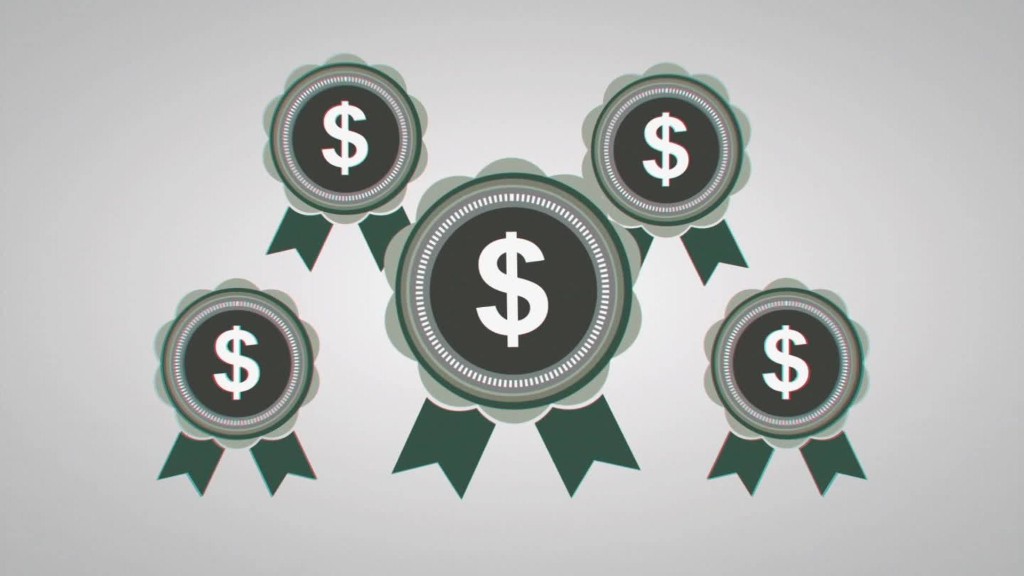
Central banks are pulling out all the stops to turn around the global economy.
They're pumping money into their economies, creating negative interest rates and buying billions of dollars in bonds. Yet experts are worried some of these strategies will not be enough to turn around the slump in the world.
"Major central banks have run out of ammo," says Ed Yardeni, chief investment strategist at Yardeni Research.
Central bankers are trying to stabilize their economies and currencies as they navigate through the volatility of the global slowdown, market meltdowns and investors pulling cash out.
But many admit they don't know what to do next.
"The world is an uncertain place, and all monetary policymakers can really be sure of is that what will happen is often different from what we currently expect," Stanley Fischer, the No. 2 at the U.S. Federal Reserve, said in a recent speech.
Related: China central banks spends nearly $100 billion in January
Fischer and other central bank leaders are arguably running out of new tools to turn things around. The European Central Bank could buy more bonds in a few weeks to stimulate the continent's economy but its leaders know that's not a long-term solution.
"We are ready and able to play our part in the recovery," ECB board member Benoît Coeuré said in a recent speech. "But for the recovery to become structural...monetary policy does not suffice."
Amid all the volatility and uncertainty, experts are growing concerned that all these recent moves are merely a short-term boost and they lack a long-term solution.
Many experts argue that Congress and its global counterparts need to step up by providing policies that promote growth, such as spending on projects to build new roads, bridges and railways.
Low interest rates are "making us into drug addicts -- we need more and more to achieve the same high. Eventually, we crash and burn without intervention," says Sharon Stark, fixed income strategist at D.A. Davidson, an investment bank.
Related: Market now predicts zero Fed rate hikes in 2016
Stark is referring to the "easy money environment" central banks have created. It means businesses can cheaply borrow money and thus are incentivized to spend -- a good thing.
But it also generates an environment where investors take more risk, borrowing money for cheap and plowing it into stocks, which artificially pumps up the value of the market. And that doesn't translate to the broader economy.
Many experts like Stark believe "easy money" will be a long-term negative for the U.S. economy and others.
The global central banks' moves also magnify how much of a burden they've taken on for the global economy's performance in the absence of policies from the legislative branch.
In a perfect world, the Fed's policies and Congress' spending on projects would complement each other.
But since the financial crisis in 2008 the Fed's role in managing the economy has greatly increased while Congress suffers through gridlock, epitomized by the government shutdown in October 2013.
Janet Yellen leads America's central bank, the Federal Reserve, which is often considered the world's central bank. She testifies Wednesday before Congress and she'll likely be questioned about the economy and the central bank's intentions.
On Monday, Chinese central bank officials announced they spent more money in January -- on top of the $500 billion from last year -- to prop up the country's currency, the yuan. Two weeks ago, Japan's central bank introduced negative interest rates hoping to encourage businesses and consumers to borrow more and help boost the economy.
Related: Bank of Japan cuts interest rate into negative territory
These actions come on the heels of the Federal Reserve raising rates in December for the first time in nearly a decade. It's unlikely the Fed will raise rates again in March amid all the global market turmoil.
Despite their efforts, the global economy isn't improving. The world can't solely depend on central banks much longer.
"We can no longer rely on central banks," investing guru Mohamed El-Erian, author of the new book "The Only Game in Town" recently told CNNMoney. "They've done all they can do and a bit more."


